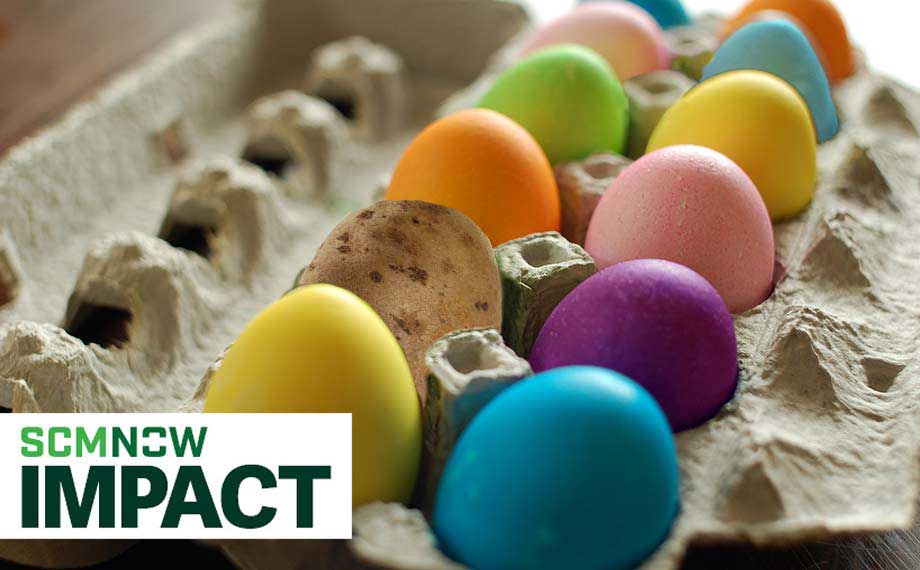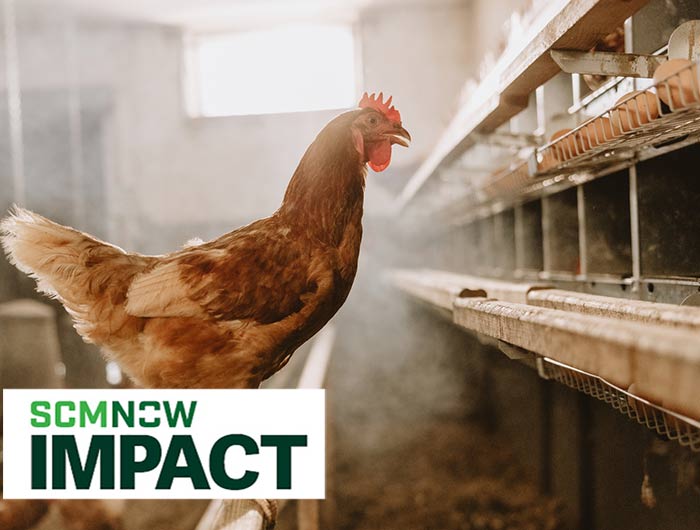One of the main reasons holidays are so special is the chance to celebrate shared traditions: For birthdays, it’s cake and candles; on Halloween, we have are candy and costumes; and New Year’s Eve means fireworks and Champagne. This weekend, many people will celebrate Easter, which typically involves dyeing and hiding Easter eggs for children to find. But with egg prices soaring, these hunts might be noticeably absent from some celebrations.
“Behind the spike is a complex mix of factors: inflation, lingering supply chain issues and a devastating bout of bird flu that wiped out nearly 54 million egg-laying hens,” reports MSN.
Interestingly, some consumers are getting creative by dyeing other egg-shaped objects, including marshmallows and potatoes — and companies are ready to meet the demand. Marshmallow brand Jet-Puffed released a brand-new kit for the occasion, per CNN. For just $1.99, it has six dye colors with miniature tongs for dipping the extra-large marshmallows, which are about the same size as jumbo eggs. Compare that to the average for a dozen Grade A large eggs: a record $6.23 and a 60% increase over last year’s prices, according to the Consumer Price Index.
Another trend, initially a meme in 2023, is replacing Easter eggs with potatoes. Potatoes have some interesting advantages, including not needing to be boiled or otherwise prepared before dyeing. Plus, as with eggs, they are biodegradable and can be consumed if food-safe colors are used when decorating. The practice is being quickly embraced and actively promoted by potato advocacy groups, which are positioning potatoes as a versatile canvas and a budget-friendly way to maintain a decorative element in Easter celebrations, albeit in a less traditional medium.
Egg-cellence in agility and responsiveness
Despite the less-than-ideal circumstances, it’s heartening to see consumers pivoting away from eggs to less expensive alternatives, keeping traditions alive and budgets intact. As supply chain professionals, we know that agility and responsiveness are crucial — particularly in times of uncertainty. We experienced it just a few years ago during the pandemic, when manufacturers switched products on a dime to meet the needs of the public. And of course, as the implications of tariffs still remain unclear, supply chains need to be adaptable to respond quickly to changes in demand, disruptions and unforeseen events. Proactive planning is one way to stay in control.
With ASCM’s Supply Chain Planning Certificate, you’ll learn the fundamentals of supply chain planning while focusing on synchronization and meeting your organization’s key goals. This certification will help you interpret and manage the master production schedule and the material requirements plan, determine order and reorder points, identify technologies to support synchronous planning, and much more. Get started today!



